Everything You Need To Know About Vegetarian Meat Subsitutes
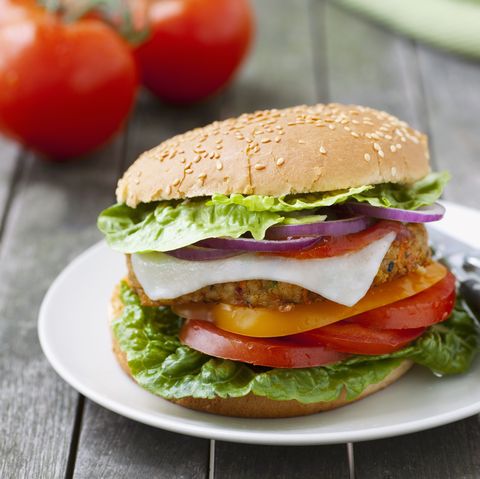
There’s a number of reasons people say goodbye to meat—environmental impact, health, or the cringe-worthy concept of eating a cute little animal. But just because someone goes veg, doesn’t mean they’ve lost a taste for juicy burgers or bacon (because, OMG those are delish.)
The good news: Vegan and vegetarian meat alternatives have come a longgg way from sad veggie burgers or tofu cubes. Now, there are so many options available—from savory tempeh bacon to vegan burgers that look (almost eerily) like beef.
Best overall: Tempeh
Not to be confused with tofu, tempeh is made of fermented soybeans, a process that requires the use of live cultures (or, you know, mold). The result is a thick, loaf-like substance that tastes delicious as slices in sandwiches, cubed in salads, or sizzled and smoked on a pan in place of bacon strips.
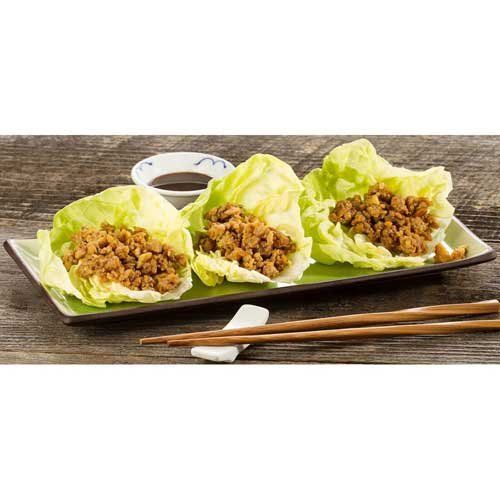
Why it’s great:
“One of my favorite vegetarian meat options,” says Amy Shapiro, R.D., founder of Real Nutrition. It’s a complete protein that’s also fermented, so it helps heal the gut and maintain healthy gut bacteria. It’s high in calcium, which promotes strong bones, and contains antioxidants, which helps ward off a variety of diseases. The isoflavones may also help fight certain cancers, Shapiro says, while its high manganese levels might help regulate blood sugar and, again, promote bone health. In tempeh, most of these nutrients are easy to absorb.
Keep in mind:
Tempeh is extremely high in fiber, so introduce it into your diet slowly to avoid bloating. Since store-bought versions can be high in sodium and other additives, you can also buy your own tempeh starter kit for a healthier DIY version.
Per 1/2-cup serving: 187 calories, 6 g fat (1 g sat fat), 13 mg sodium, 13 g carbohydrates, 0 g of sugar, 9 g fiber, 21 g protein.
Buy: Tofurky Bulk Soy Tempeh (12-pack), $84.99, amazon.com
Best if you miss meat: Seitan
This meat alternative made from wheat gluten (the protein found in wheat), acts as the star of many Buddha bowls—and thanks to its dense texture, it’s eerily similar to duck, but works well sliced in sandwiches or topped on pizza.
Why it’s great:
If you have a soy allergy or prefer to avoid it for other reasons, seitan isn’t soy-based, so this is a safe bet. Shapiro adds that it’s high in protein, which can help promote weight loss and muscle maintenance.
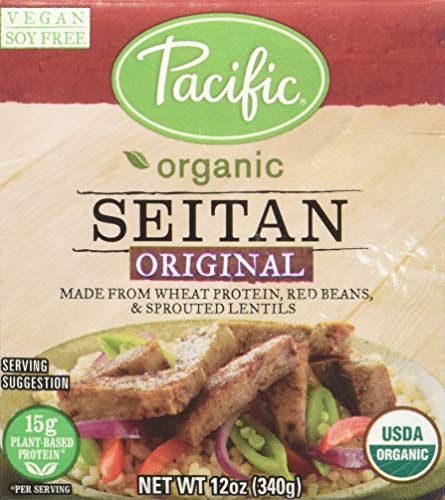
Keep in mind:
Since it’s made of wheat proteins, those with gluten sensitivities, intolerances, allergies or Celiac disease should stay far away from seitan. You also have to be careful about what you’re buying. “Quick store-bought varieties are often full of preservatives, seasonings and additives like soy sauce, sodium and stabilizers to help it taste better,” says Shapiro.
Here’s where it gets tricky: Unlike other meat alternatives, seitan is not considered a complete protein (one that contains all nine amino acids), so Shapiro recommends pairing it with other sources of plant-based protein like beans to balance it out.
Per 3-ounce serving: 108 calories, 1 g fat (0 g sat fat), 408 mg sodium, 5 g carbohydrates, 2 g of sugar, 1 g fiber, 20 g protein.
Best if you still eat meat: Jackfruit
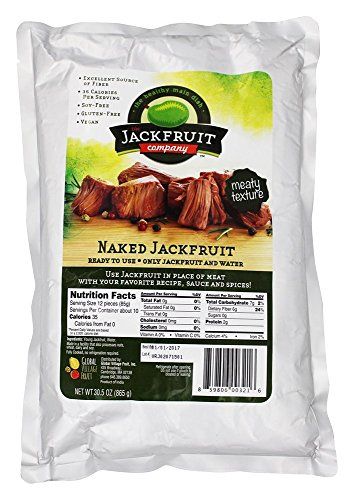
Vegans no longer need to miss out on Taco Tuesdays since jackfruit mimics the texture of pulled pork. The India-native fruit has a slightly sweet flavor—it is a fruit, after all!—but if you braise it in the right savory sauces, you’ll hardly be able to tell the difference. Vegan and carnivores alike can enjoy this savory substitute.
Why it’s great:
Shapiro says it’s high in magnesium, fiber, B6 and antioxidants, while also being fairly low carb in nature. She adds the fiber content also helps with bowel regularity, weight loss and cholesterol levels.
Keep in mind:
It’s not as high in protein as other meat alternatives, according to Shapiro, so pair it with other sources of plant-based protein like ancient grains and legumes for a complete, balanced meal.
Per 1-cup serving: 157 calories, 1 g fat (0 g sat fat), 3 mg sodium, 38 g carbohydrates, 31 g of sugar, 3 g fiber, 3 g protein.
Best if you don’t like the taste of veggie burgers: Pea Protein Isolate
Whether you’re grilling or pan-frying, this alternative meat source derived from yellow split peas packs tons of protein in a mild, nutty bite. And it legit looks like ground beef.
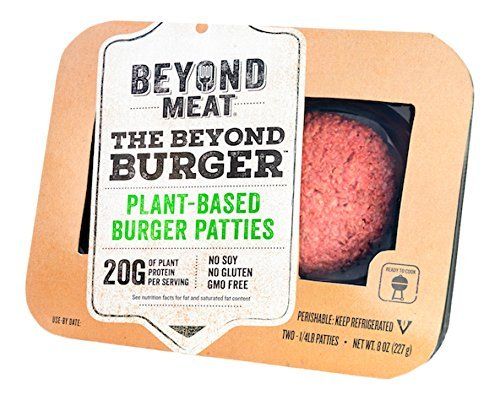
Why it’s great:
It’s tough to mimic the texture and mouthfeel of ground beef, but pea protein isolate or textured pea protein nails it pretty well. According to Desiree Nielsen, R.D., some brands use beets as food coloring to give pea protein isolate that medium-rare ground beef look, which can be off-putting for some people (though satisfying to others!). One of the most popular brands out there now that uses it (which you’ve probably seen on some menus) is the beyond meat burger.
Nielsen also notes it’s gluten free, soy free, GMO-free, and contains tons of protein.
Keep in mind:
While vegan, it can be loaded with coloring and textural additives. “Eating hyper-processed meat substitutes like this once or twice a week as a treat would be fine within a healthy diet, but I wouldn’t make them a mainstay over simpler options like beans and high-protein veggies,” she says.
Per patty: 270 calories, 20 g fat (5 g sat fat), 380 mg sodium, 5 g carbohydrates, 0 g of sugar, 3 g fiber, 20 g protein.
Best in moderation: Tofu
Much like cheese is made from cow’s milk, tofu is made from congealed soy milk, according to Shapiro. It’s the chameleon of vegan meat substitutes, adopting virtually any flavor, from stirfry to hot dogs to icing.
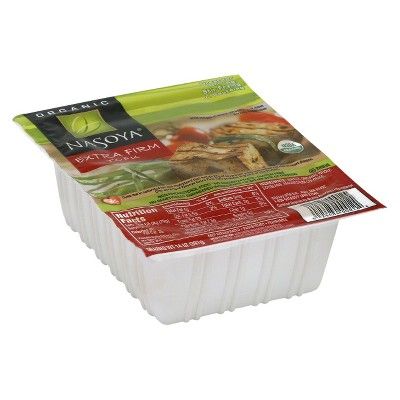
Why it’s great:
Soy from tofu is a complete protein since it contains all of the nine essential amino acids, which Shapiro says is a rarity in plant-based foods. It’s high in minerals like iron and calcium, which are particularly crucial for vegan diets. Shapiro says it’s often fortified with vitamin B12, which is not bioavailable in plant-based foods.
Keep in mind:
Oof—you’re not going to like this.
“[Tofu] is often genetically modified, which is something I do not recommend my clients eating. High GMO foods have been linked to many health issues so I recommend staying away from them,” says Shapiro. She warns that those with breast cancer or who have survived estrogen-sensitive breast cancer should avoid tofu because it contains estrogens.
She adds that tofu also contains goitrogens, a substance which can interfere with thyroid function and should be limited. Their phytate (an antioxidant compound) content also binds to certain nutrients and blocks them from being absorbed in the body. Yikes.
“If you’re looking to eat tofu, I recommend finding organic sources, possibly fermented, and avoid if you have any of the symptoms listed above,” Shapiro says. Or, stick to some of the other mentioned vegan meats instead.
Per ½ cup serving: 98 calories, 5 g fat (1 g sat fat), 186 mg sodium, 4 g carbohydrates, 1 g of sugar, 1 g fiber, 11 g protein.
Source: Read Full Article


